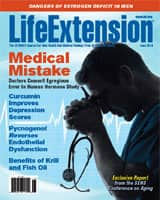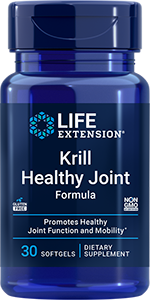High dose vitamin C reduces Epstein-Barr viral infection
Tuesday, June 3, 2014. On May 3, 2014, the journal Medical Science Monitor reported a benefit for intravenous vitamin C in patients with high levels of antibodies to the Epstein-Barr virus (EBV), which has been implicated in chronic fatigue syndrome, Burkett's lymphoma, Hodgkin's disease and some autoimmune conditions. "This is, to our knowledge, the first clinical study of ascorbic acid and EBV infection," announce authors Nina A. Mikirova and Ronald Hunninghake of the Riordan Clinic in Wichita.
The duo evaluated data from 35 men and women diagnosed with chronic fatigue or other conditions who had Epstein-Barr virus antibodies measured before and after treatment with 7.5 to 50 grams of intravenous vitamin C. Thirty-two of the 35 subjects showed improvement following vitamin C treatment. While the level of IgG antibodies to the EBV early diffuse antigen (EBV EA IgG) averaged 80 AU (arbitrary units) before treatment, post-treatment levels averaged 46 AU. Subjects who had five or more vitamin C infusions had a significantly greater percent decrease in EBV antibodies over time in comparison with infected individuals evaluated by the clinic who did not receive intravenous vitamin C, with EBV EA IgG levels showing a decline in association with increasing treatments.
Higher pretreatment plasma ascorbic acid levels were found to be correlated with lower antibody levels. The researchers additionally determined that peak ascorbic acid levels following a given dose of vitamin C were higher among those with lower antibody values, indicating that those with greater infection burdens are significantly vitamin C-depleted and require more of the vitamin to replenish tissue levels. Furthermore, investigation of the subjects' test results uncovered an association between increasing concentrations of serum vitamin D and a reduction in EBV EA IgG.
"The possible mechanisms for this involve the effect of viral infection on cellular glucose uptake rates and increased oxidative stress," the authors explain. "Viruses are thought to increase cellular expression of the glucose transporter: this in turn would increase the rate of ascorbic acid uptake into the cell, since ascorbic acid enters cells as dehydroascorbate via these same glucose transporters."
They recommend further research involving a combination of vitamins C and D and other antioxidants in EBV-infected patients.
|
 |
What's Hot
The journal Hepatology published an article on May 22, 2013 which revealed an association between reduced vitamin D levels and increased replication of the hepatitis B virus (HBV).
"Vitamin D helps maintain a healthy immune system and there is evidence of its role in inflammatory and metabolic liver disease, including infection with hepatitis C virus (HCV)," noted lead researcher Christian M. Lange of Johann Wolfgang Goethe University Hospital in Frankfurt, Germany. "However, the relationship between vitamin D metabolism and chronic HBV infection remains unknown and is the focus of our present study."
Dr Lange and his colleagues measured serum 25-hydroxyvitamin D levels in 203 chronic hepatitis B patients who had not yet initiated therapy. Vitamin D deficiency, defined as serum levels of less than 10 nanograms per milliliter (ng/mL) were detected in 34% of the patients and insufficient levels, ranging between 10 and 20 ng/mL, were uncovered in 47%.
Among those with serum hepatitis B DNA concentrations of less than 2,000 international units per milliliter, vitamin D levels averaged 17 ng/mL in comparison with an average of 11 ng/mL among participants with higher viral loads. Additionally, subjects who were positive for hepatitis B early antigen (HbeAg) had lower levels of the vitamin than those who were HBeAg negative. Furthermore, the researchers observed seasonal fluctuations in both serum hepatitis B DNA and vitamin D, with higher levels of one associated with lower levels of the other.
"Our data confirm an association between low levels of vitamin D and high concentrations of HBV in the blood," Dr Lange concluded. He suggests additional research involving the administration of vitamin D as a possible means of controlling hepatitis B infection. |
 |
Highlight
June 2014 E-Issue of Life Extension Magazine now Online!

Health Headlines
As We See It: Misguided medicine, by William Faloon
Wide-ranging longevity benefits of pycnogenol, by Sarah Brighton
A new way to manage depression without drugs, by Michael Downey
Conference Report: The 2013 SENS Foundation Conference, by Ben Best
Maximizing omega-3 health benefits, by S. R. Knowlton
Support healthy hair and scalp regeneration, by Robert Goldfaden and Gary Goldfaden, MD
The dangers of using antibiotics to prevent urinary tract infections, by Alex Johnson
Departments
In the News, by D. Dye
Wellness Profile: Warren Honeycutt, by Jon Finkel |

|
Latest Products |
 |
|
Krill Healthy Joint Formula is a patent-pending blend of deep-sea whole krill oil sourced in Antarctica, combined with hyaluronic acid and astaxanthin. In a recent clinical trial of 100 older individuals using this innovative formulation, a 55% reduction in joint discomfort was observed in less than three months, with 63% of those participants maintaining ease of motion.
Research reveals that the fatty acids found in krill oil are particularly effective for joint health. These unique fatty acids have been shown to specifically target joint tissue.
Hyaluronic acid occurs naturally in the joints, where it acts to lubricate and cushion against repeated physical impacts. Because it forms a major component of cartilage and soft tissue, it is widely used to promote joint health. The difficulty has been that hyaluronic acid is a large molecule that is not well absorbed by the body. But, when combined with krill oil, it has been shown to reach significantly higher levels in the bloodstream than in standalone form in rats. |
| |
 |
|
Life Extension Super Booster contains optimal amounts of critical oil-based nutrients and is designed to complement the Life Extension Mix™.
The Super Booster provides high doses of the most effective form of vitamin K known as menaquinone-7. Just one Super Booster softgel provides:
- Gamma Tocopherol
- Sesame Lignans
- Vitamin K
- Lycopene
- Lutein
- Ginkgo
- Chlorophyllin
If you are currently taking anticoagulants such as Coumadin® (warfarin), please consult with your personal physician before taking supplemental vitamin K. |
|
 |
Related Articles
|
|











